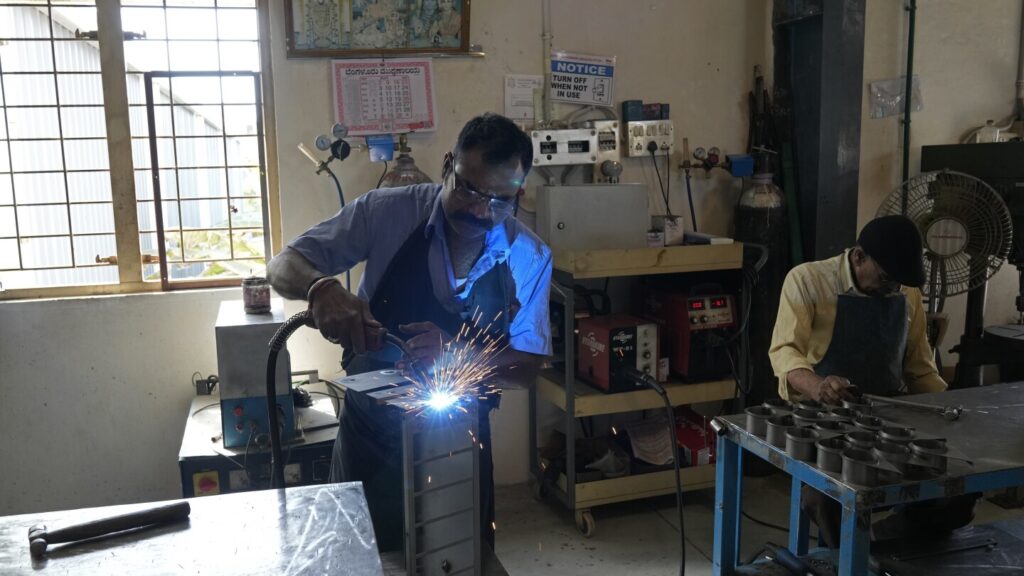In Bengaluru, India, small factories bustling with workers crafting various steel products are facing a potential shift in the industry due to U.S. President Trump’s proposed high trade tariffs on steel imports. The tariffs could lead to cheap steel being dumped in countries like India as it becomes too costly for exporters in China and South Korea to sell to the U.S. This development is welcomed by industry workers like B. Praveen of Sun Techpro Engineering, who anticipates lower steel prices benefiting businesses like his, contributing to India’s economy driven by over 200 million workers.
However, the influx of cheap steel poses challenges, as highlighted by Naveen Jindal of the Indian Steel Association, who expressed concerns about potential steel dumping impacting India’s market and hindering efforts to produce cleaner steel. India’s steel industry, already a significant contributor to greenhouse gas emissions, is poised for rapid growth to meet escalating demand driven by urbanization and infrastructure projects.
Despite ambitions for cleaner steel production, India heavily relies on coal-based blast furnaces, raising concerns about meeting climate goals and international standards. The country’s transition to cleaner steelmaking methods faces financial and operational challenges, balancing economic growth with environmental sustainability. As India strives to achieve its ambitious climate targets, the steel industry’s decarbonization efforts and alignment with global emission standards are crucial for long-term viability and competitiveness in the international market.

